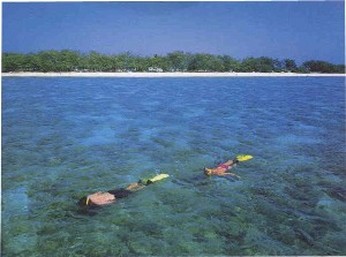Collecting guidance
Picking up shells on an idyllic beach is one of life's pleasant experiences and often leads to the development of a seashell-collecting hobby. Shell collecting develops an appreciation of nature and many of our members play an active role in the acquisition of scientific knowledge and conservation. But like many natural history collectors, we must adopt and promote good practices.

A collecting hobby leads to economic value being placed on specimens. The temptation arises to start collecting rare live specimens for their resale value. A collector taking one or two specimens from a population will have little impact but in certain countries the economic incentive for the local population to create a flow of shells for the gift shop market, and the wilful exploitation of rare live specimens by dealers, has caused some governments to set out restrictions on collecting.
The Club expects members to fully respect the restrictions of CITES (Convention on International Trade in Endangered Species of Wild Flora and Fauna). Any dealer or member exchanging specimens is required to ensure that none of their material is covered by the CITES legislation, by the European Protected Species legislation, or by any legislation local to the country in which you collect. The British and European legislation is described on this website in the article Protected species and the BSCC.
Some countries restrict collecting of live specimens in order to conserve stocks and limit senseless exploitation. Members are expected to respect these local conservation controls. The Club advises it members to check local conditions and legislation before they book their journeys, either through travel websites or by correspondence with local collectors who can be found on the internet.
Information and articles on successful collecting experiences in different countries can be found in the sections UK collecting and For reference.
Good practice
The British Shell Collectors' Club encourages its members to follow a code of conduct for sensible collecting practices.
- check local regulations with a collector at your destination before you book a shell-collecting trip.
- collect and enjoy beach shells. Try to get specimens from local fishermen.
- if you are buying local specimens, buy for your collection. Don’t buy for the resale value.
- if you are collecting live specimens, then think. If it is a species which is abundant, take the specimens for your collection. For less common species, limit yourself to one or two and don’t be tempted by the value of the find.
- leave the live coral alone! Put rocks back in place, the way you found them, even in deep water. Many things live under them – be alert for invertebrate eggs and protect them.
- if you have a good collection and have built a fund of knowledge, share it within our Club or with museums and other scientific organisations so that it is retained for everyone. Most of these organisations rely on collectors as a source of specimens.
